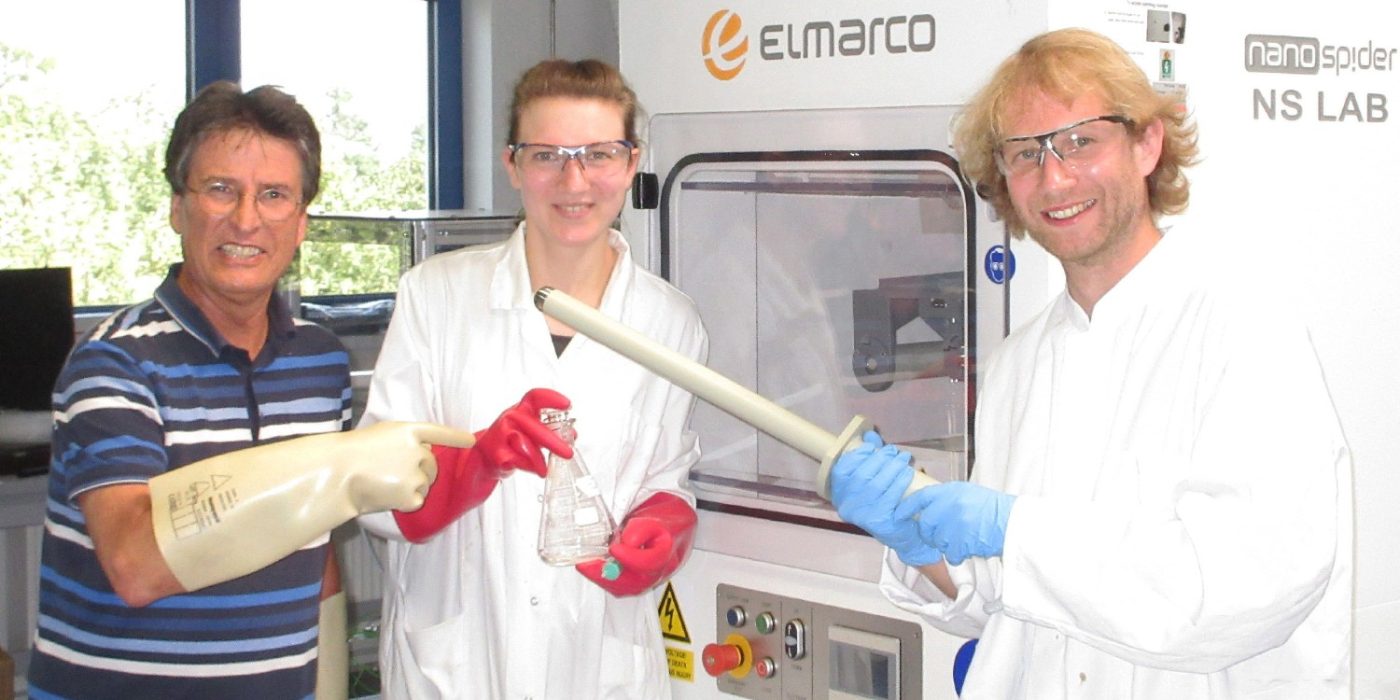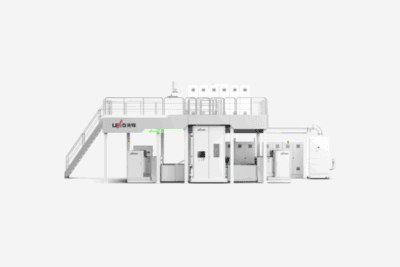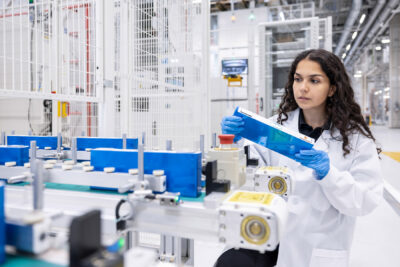IntelliSpin project to utilize AI for battery development
In order to advance cell production in Germany and Europe, the Landshut University of Applied Sciences and the Technical University of Munich are to develop new technology in the new IntelliSpin research project that uses electrospinning and artificial intelligence to make battery production more flexible and reduce costs.
The German government is funding the project with a total of 888,000 euros. The idea of the team around Karl-Heinz Pettinger from the Technology Centre Energy in Ruhstorf a. d. Rott is to use electrospinning to make previously non-laminable electrodes laminable and thus increase flexibility in production.
During lamination, positive and negative electrodes are alternately layered on top of each other with separators in between and then sealed with a film. Water-based electrode formulations, which are cheaper and more sustainable, cannot be laminated with the current technology. Here, the researchers want to apply a wafer-thin layer of a special polymer in order to be able to produce laminated battery cells with such electrodes after all.
“If we manage to automate this technology and integrate it into the processes of Industry 4.0, this will enormously strengthen the competition of companies against large-scale industrial plants,” says Professor Pettinger, according to the HAW Landshut release. “In this way, we support industry in making investment decisions in favour of production plants in Germany and Europe.”
The process uses electrospinning to “spin chemical materials into ultra-fine fibres with diameters of a few micro- or nanometres”, as Pettinger explains. For the polymer layer, a chemical solution is sprayed into an electric field. The solution is attracted to the counter-electrode and accelerated. During this process, the solvent evaporates and nanofibres are formed that are up to 1,000 times thinner than a human hair and are deposited like a kind of fleece.
“Our ultimate goal is to achieve a completely networked production line. This allows the battery manufacturers to reduce their scrap rates, to improve the quality and lifetimes of the cells and to therefore make the production more flexible,” says Pettinger.
The IntelliSpin project is expected to run until 31 December 2023.
With reporting by Sebastian Schaal, Germany.





0 Comments